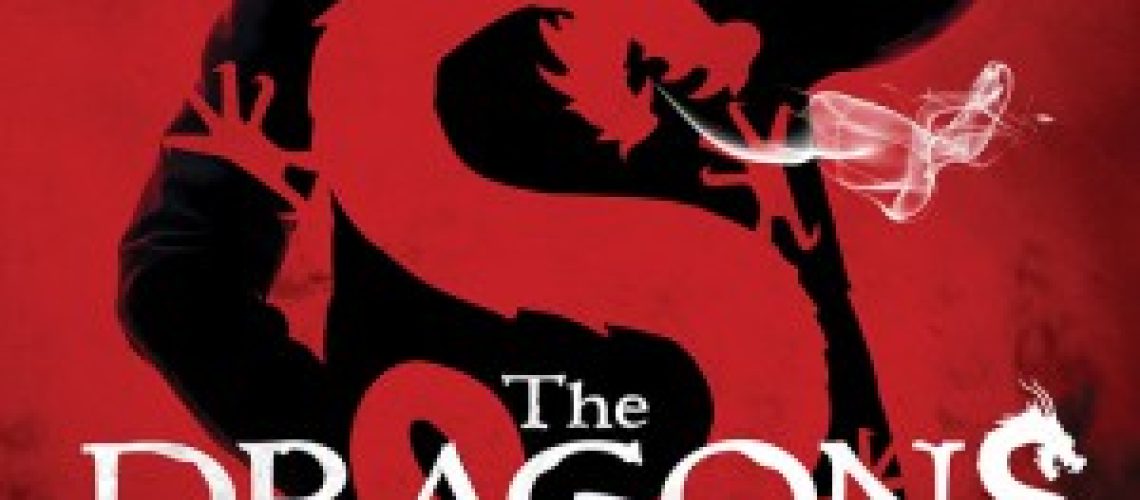In the darkened streets of San Francisco’s Chinatown, Missy Masters is struggling to take up the vigilante-hero mantle of her retired, estranged grandfather, Mr. Mystic. Missy shares his stubbornness, his intimate connections with Chinese culture, and his uncanny ability to cross into a realm of shadows and exert limited control over the creatures within.
Just as she literally straddles worlds, Missy also dances a line of pretending to be an aged, but expert, male superhero while training to advance beyond her actual novice abilities. She aspires to the strength and moral right that her grandfather embodied while battling against memories of his emotional distance, his personal secrets, and the prejudices common of his generation. Typical of masked superheroes, she has two lives, the separate worlds of Missy Masters and of Mr. Mystic. And she has past experiences, a world away in China, that have led her to be the woman and vigilante of the present.

Events from that past return to strike Missy when the mystic Guardians of the city are kidnapped and a magical barrier isolates Chinatown from the rest of San Francisco. Then, just as Missy tries to confront the crisis, the same thing happens in grander and more threatening scale with China itself. Though recognizing this as a trap designed to lure her, Missy realizes she has no choice but to return to China and face the immortal dragons of her grandfather’s — and her own — past.
The Dragons of Heaven is a fun read. It is a genre blend that combines urban fantasy with folkloric myth, the superhero comic, romance, and the complex family dynamics featured in ‘mainstream’ fiction. There is magical action driving the plot aplenty, there are moments of humor and pop culture reference. But there are also great doses of introspection, of character development for Missy, and deep themes at its core.
I particularly appreciated the way Helms writes Missy’s development within the plot and structural confines of the novel. The chapters of The Dragons of Heaven are a contrapuntal conversation between Missy’s present and the formative events of her past. Some readers have objected to this organization, but I consider it essential for the novel. The Missy of the present, who runs around the night streets of Chinatown as Mr. Mystic, is not the same person as the young woman who left to discover her grandfather’s past, and herself, in China. The relevance and meaning behind the plot of the present only make sense to the reader as they learn of Missy’s past. It is a gradual build that effectively caught and held my attention.
If you go into this expecting quick info-dumps and spoon-fed explanations to simplify a complex set of characters bridging two time periods and two cultures, you will be disappointed. The story is not just a fun, mindless adventure; it requires some patience and thought. With its mixture of genres the novel succeeds in thwarting reader expectation because it never commits to any stereotypical direction.
The Dragons of Heaven contains some of the usual themes that one might expect from this as a superhero story: the moral quagmire of vigilantism, personal sacrifices made for the dedication to the job, the dangers of mystical powers that touch darkness, etc. However, the general recurring theme I found unique and fascinating is the sense of intrusion on worlds not one’s own. Conflicts over a sense of intrusion lie at the center of Missy, within the supporting characters, and in the philosophical differences that drive the plot through the plans of the villain.
Missy is a woman dressing up as a male superhero, interpretable as commentary on gender ‘intrusion’, that ridiculous notion that Wonder Women can’t compete at the level of Supermen or that Black Widow can’t hold a film of her own (or even merit an action figure). Beyond the matter of gender, Missy is a newcomer to the superhero business, and other ‘official members of the club’ see her as an unwelcome, misguided intruder on their gig.
She is also an intruder into the shadow realm, a zone filled with many dangerous creatures but also home to a lovably devoted being who is happy to serve her, and acts somewhat like a familiar or as a pet. Missy struggles to come to terms with this level of control over another intelligent being, in how much sacrifice and risk she can demand.
And like her grandfather, Missy is a cultural intruder, a Westerner intimately tied into Chinese civilization; she is a mortal intruding into the affairs of immortal gods, into the strained existence of a dragon family. The central portion of the novel is primarily concerned with these conflicts, as Missy struggles against being viewed as a foolishly unworthy pretender, and as a woman who should obey a husband rather than follow her own thoughts in conversation with a partner.
Even aside from Missy this theme arises again and again: the intrusion of parents into the lives of their children (or vice versa), intrusion of gods into the affairs of mortals, intrusion of modern ignorance into ancient wisdom, intrusion of new love into older responsibilities.
Despite the powerful adversity that Missy faces, she stands resolutely strong, a sympathetic female protagonist that draws strength from being female without giving into societal gender expectations. For all of the conventional genre elements that The Dragons of Heaven draws upon, it is filled with unconventional relationships and nicely entertains while inviting thought or conversation on cultural ownership/appropriation.








One Response